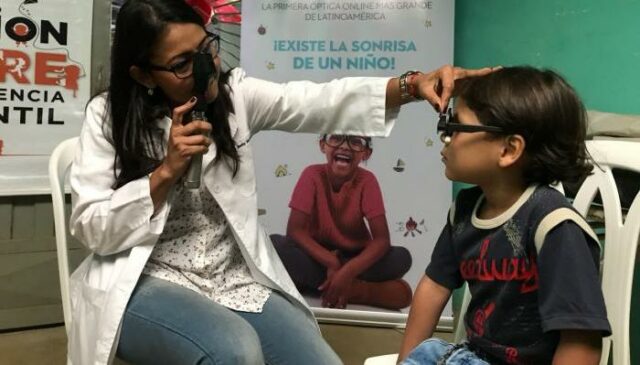For almost two years, thousands of Tico children and teens were exposed to cell phones, tablets and computers, and other electronic devices to attend their virtual lessons. Such prolonged exposure could cause vision damage such as tiredness, dry eyes, and redness. This situation could degenerate into eye diseases, such as myopia. That is why a regular vision check-up with the optometrist will help detect any visual anomaly that alters performance and concentration in class.

“With the return to school, it is essential that parents carry out early detection of the visual deficiencies that their children could present. Treating myopia and other deficiencies in children and teens in time is key, because otherwise they are exposed to developing other complications that irreversibly threaten their vision in the future”, commented Mely Quesada, Ticooptometrist.

Visual deficiencies in the little ones
A study in the Journal of the American Medical Association, conducted between 2015 and 2020, showed that visual deficiencies increased especially in children between 6 and 8 years old.
More cases were reported during the lockdown period. For example, the myopia rate in 6-year-olds was 21.5% in 2020. A year before the pandemic, the reported rate was 5.7%.
Some signs that allow parents to identify if their son or daughter has a visual deficiency are:
- Sits very close to the television
- Gets very close to books (even tilting head to one side to read)
- Have constant severe dizziness or headaches
- Squint their eyes to look at objects
- Suffer from eye irritation and burning in the late afternoon
Purchase of glasses
If it is indeed necessary to purchase glasses, it is important that you take special care when choosing them. In particular, consider that the prescription indicated by the specialist is followed since it specifies the gradualness of the lens that is needed to correct the visual problem.
Also, take into account the following when purchasing glasses for your kids:
- The hoops must be resistant and light. For younger children, silicone frames are the best choice as they are more flexible and prevent breakage.
- They should be the right size and fit their face; They should not be too big or too small.
- The glasses must be comfortable, not cause any discomfort, both on the face and behind the ear, as well as not put pressure on the cheeks.
- Buy them flexible, adjustable and safe. And that they do not fall when bending down, jumping, running or playing sports.
“Healthy eyes and vision are fundamental elements in the development of young people. 80% of what we assimilate is done through our eyes and if the visual system does not work correctly, deficiencies can be found that make the concentration process difficult”, said Quesada.It is even estimated that about 30% of learning problems in children and teens stem from deficiency and visual health problems, added the specialist.

